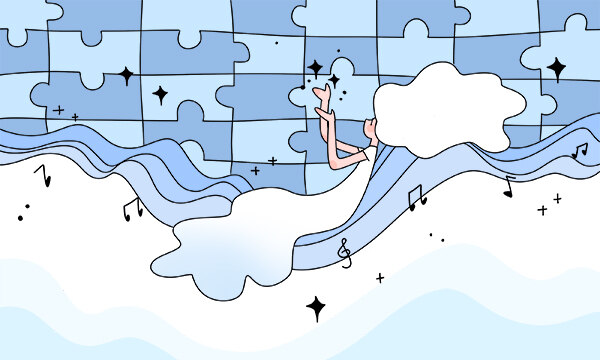时间:2022-10-21 16:29
反义疑问句即附加疑问句,是对陈述句所表示的事实或观点提出疑问的句子。反义疑问句由两部分组成:前肯后否,前否后肯。两部分的人称时态应保持一致。

反义疑问句即附加疑问句,是对陈述句所表示的事实或观点提出疑问的句子。反义疑问句由两部分组成:前肯后否,前否后肯。两部分的人称时态应保持一致。
1.祈使句的反义疑问句用will you表示 “请求”,或用won't you 表示提醒对方注意;
在否定的祈使句后,只能用will you。Look at the blackboard, will you/won't you?
2.Let's引导的祈使句表示“建议”时,反意疑问句部分用shall we。
Let's go home, shall we/shan't we/may I? Let me/us have a try, will you/won't you?
Don't forget, will you?
3.感叹句 用be的一般现在时的否定式 What fine weather, isn't it?
4.主语是不定代词one时 ,主语可以用one,也可用he(美式英语)
One should be ready to help others, shouldn't one?
5.含有否定词:few,little,seldom,ha-rdly,not,no,no one,nobody,nothing,none,neither等反意疑问句部分用肯定
He is never late for school, is he? He hardly knows anything about computer, does he?
6.含有的否定词是通过加前缀或后缀构成,反意疑问句部分用否定结构 It is unfair, isn't it?
7.主从复合句根据主句的谓语而定;若主从复合句为含I think /believe/suppose...that... 结构,与从句的主、谓语保持一致。 They agreed that the United States shouldn't make a war on
Iraq, didn't they?
I don't think he will come, will he?I suppose (that) he is serious, isn't he?
8.并列句 谓语根据邻近从句的谓语而定 I won't go there, but he will go instead, won't he?
9.there be句型用there There was a hospital here, wasn't there?
10.含有had better 用hadn't We had better go there at once, hadn't we?
11.含有情态动词must ,must表示“必须”,反意疑问句部分为mustn't...? /needn't...?
must表示推测时,反意疑问句部分与must后面的动词呼应。 We mustn't be late, must we?
Y ou must go home now, needn't you? /mustn't you?
Tom must be at home now,isn't he?
含used to表示“过去常常”,didn't+主语或usedn't+主语
He used to live in China, usedn't /didn't he?
would rather/like to+v. wouldn't+主语 He would rather stay at home, wouldn't he?
1、肯定反义疑问句的回答
当陈述句为否定,反问句为肯定时,答案往往与汉语不一致,需要特别注意:
"It isn' t expensive, is it?" "Yes, it is."
“它不贵吧?” "不, 很贵。”
"He doesn' t like apples, does he?" "No, he doesn' t."
“他不喜欢苹果,是吗?”"是的, 他不喜欢。”
2、否定反义疑问句的回答
当陈述是肯定的,反义词问句是否定的时候,答案一般不难,一般你只需要根据情况来回答:
"It's old, isn't it?" "Yes, it is."
“那是旧的,对吗?”“对,是旧的。”
"He wants to go out to work, doesn't he?" "No, he doesn't."
“他想出去工作, 对吗?”“不, 他不想。“